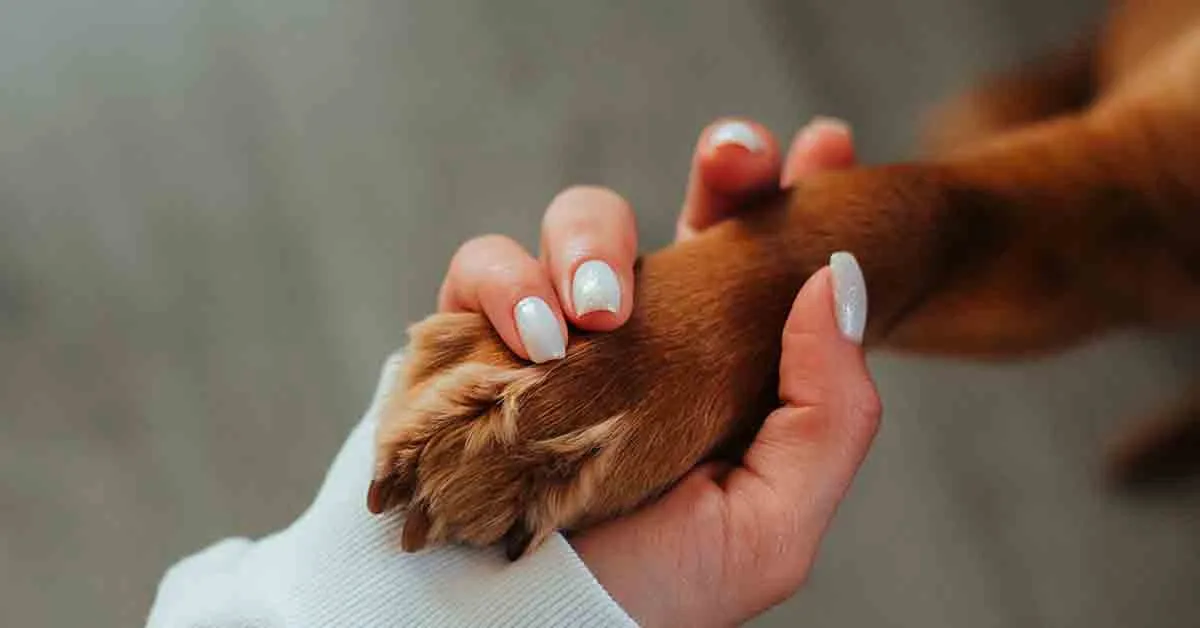Dogs make excellent friends, and their care is a main concern for pet owners. The temperature of their dog’s mouth is a typical concern among pet owners. You may have noticed that your dog’s mouth gets cold at times. Is this, however, cause for concern? In this post, we’ll look at why your dog’s mouth could feel chilly, what’s normal, and when it could be an indication of something more serious.
Table of Contents
ToggleNormal Temperature for a Dog’s Mouth
The body temperature of a dog is normally higher than that of a human, and this difference extends to their mouths as well. A healthy dog’s oral temperature should be between 100.5°F and 102.5°F (38°C and 39.2°C). This temperature varies greatly between breeds, so it’s important to understand what’s normal for your specific dog.
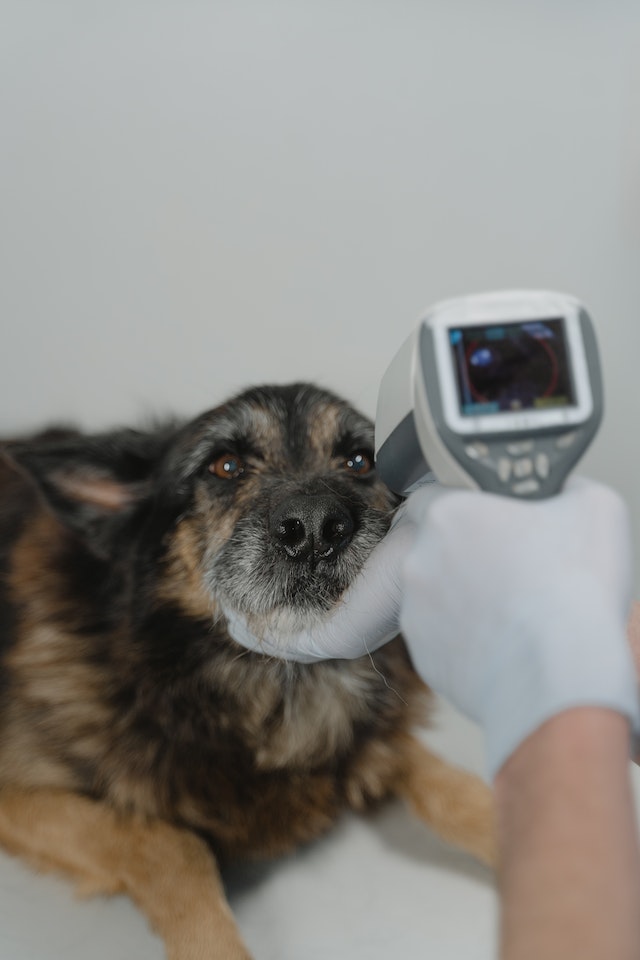
Why Is My Dogs Mouth Cold?
A dog’s mouth can feel cold for various reasons, and while it’s not always a cause for concern, it’s important to be aware of these special points.
1. Controlling body temperature:
To stay healthy, dogs, like humans, must maintain a comfortable body temperature. One method they use is to regulate their body temperature through their mouths. Dogs have a specific cooling system that they use when it’s hot outside or they’ve been active.
Panting is the rapid breathing of a dog with its mouth open. As they do so, they expel surplus heat from their bodies. This heat escapes through their wet tongue surfaces and mouth lining, making their mouths seem cooler to the touch.
Consider a dog’s mouth to be a built-in air conditioner. They cool down when the moisture drains. This is why your dog’s lips may seem cooler after a run or on a hot day. It’s a natural and healthful way to help them stay cool.
If a dog’s mouth is continuously hot or cold, it could be an indication of an underlying health problem, so keep an eye on their temperature and check with a veterinarian if you have any worries about their health.
2. Recent Drinking:
When your dog’s mouth feels cool, it could be due to something as simple as recent drinking. Dogs do not sweat like humans do, but they do cool down through their mouths, one of which is by drinking water.
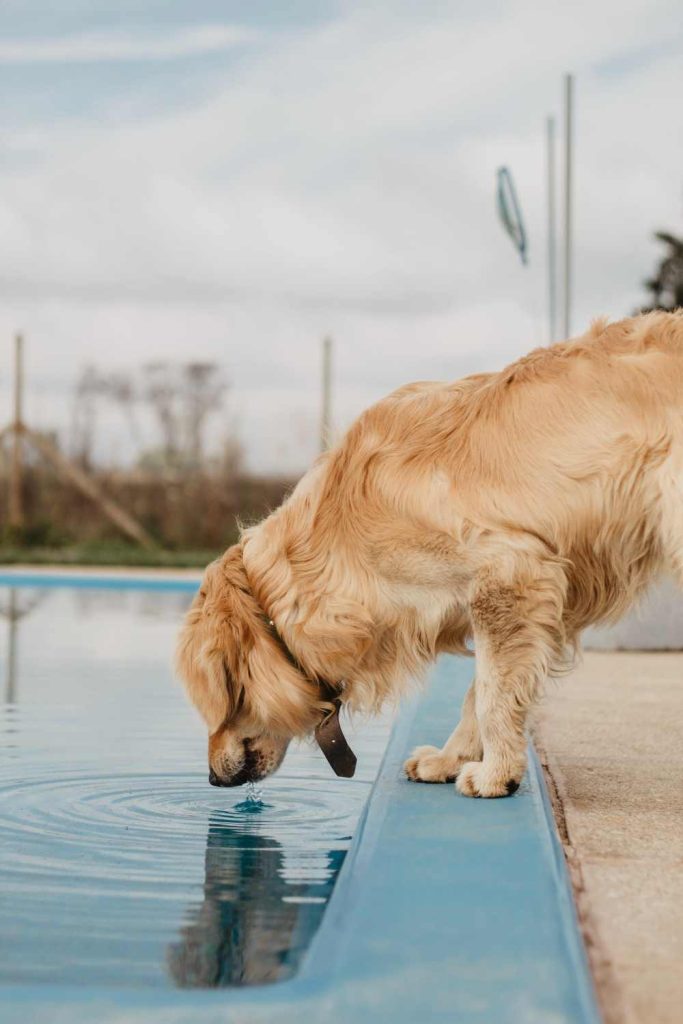
The moisture in their mouth after a nice swallow of cold water can make it feel cooler to the touch. It’s similar to how your mouth feels after drinking a cool drink on a hot day. The same is true for your dog.
So, if you see your dog drinking from their water bowl, don’t be shocked if their mouth seems a little chilly afterward. Rehydrating and regulating their body temperature is a natural and healthy response.
Remember that water is important for your dog’s health, especially in hot weather or after exercise, so make sure they always have access to fresh water.
3. Weather Conditions:
Weather factors might also influence how your dog’s mouth feels. Dogs, like humans, are affected by the weather. Here’s how it’s done:
Extreme Heat:
On a hot day, your dog may try to cool down by breathing. Moisture from their mouth disappears as they breathe out, helping in the reduction of their body temperature. Because of their breathing and wetness exchange, their mouth may feel cold to the touch.
Extreme Cold:
Your dog’s body may naturally save heat in cooler weather, which can impact the temperature of their mouth. They may tuck their noses in when it’s cold outdoors, making their mouths feel cooler to you.
So, don’t be surprised if your dog’s mouth feels different in various weather conditions. It’s just another way their bodies adapt to the environment. Always ensure they are comfortable and appropriately protected from extreme weather, whether it’s hot or cold, to keep them healthy and happy.
4. Breed Differences:
Dogs come in many different kinds of breeds, and these breed changes might affect how a dog’s mouth feels.
The mouth temperature of a dog is heavily influenced by genetic variables. Because of their DNA’s design, some breeds may have naturally cooler or warmer mouths. Smaller dogs with less fur, for example, may have warmer lips due to their larger surface area relative to their body size. Larger dogs with thick coats, on the other hand, may have cooler mouths because they are better at keeping heat.
Brachycephalic breeds, such as bulldogs and pugs, may have much warmer mouths due to a face design that reduces ventilation and might result in higher heat retention.
Working and sports breeds, such as Huskies and Greyhounds, may have cooler lips as a result of their athletic temperament, which aids in heat dissipation when they are active.
It’s important to remember that these breed-specific changes in mouth temperature are only one component of the overall features that distinguish each breed. While this is amazing, it is vital to examine your dog’s specific needs and care requirements, regardless of breed.
5. Activity Level:
The temperature of your dog’s mouth can be changed by their level of activity. In simple terms, here’s how it works:
Rest vs. Activity:
A dog’s mouth may feel cooler when it is at rest. Their body generates more heat when they become more active, such as during play or exercise. Because of their increased activity, more blood flow circulates, making their tongue feel slightly warmer.
Panting:
Dogs pant to cool down, especially when they are active and need to remove extra heat. Moisture from their mouth and tongue disappears as they pant, lowering their body temperature. As a result, their mouth may feel heated during and after play or activity.
So, if your dog’s tongue feels heated after a vigorous play session, that’s quite normal. It’s their body’s way of keeping cool and comfy. To help them cool off and stay healthy, provide water and a cool, shady spot for them to rest after hard work.
6. Recent Eating:
You may notice that your dog’s mouth feels somewhat warmer after eating. This is because digesting increases blood flow to the stomach and intestines naturally. As a result, some of the heat might be transferred to the mouth, making it feel warmer to the touch.
The degree of warmth varies from dog to dog and may be invisible, but it is a typical component of their processing process. It’s similar to feeling warm after a large meal since your body has to digest the food and release vitamins.
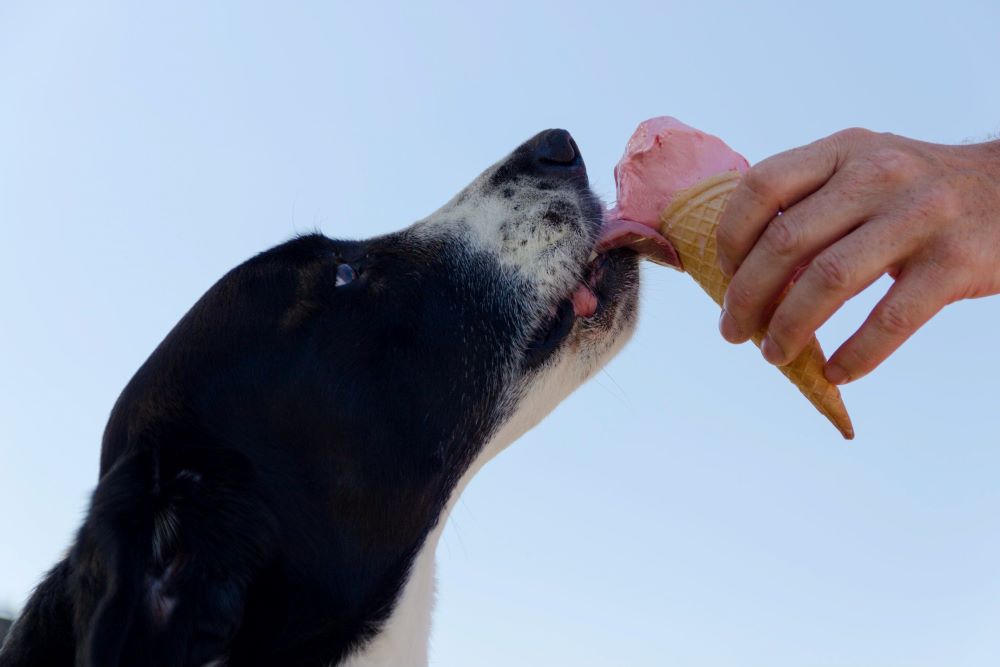
There is normally no cause for alarm if your dog’s mouth feels warmer after eating. However, if you see any significant variations in their body temperature, especially if they appear sleepy or disturbed, you should check with a veterinarian to rule out any root causes.
7. Stress or Anxiety:
Stress or anxiety can affect your dog’s mouth temperature. Here’s how it works:
Stress Response:
When dogs are stressed or anxious, their bodies enter a “fight or flight” state. This body reaction can cause variations in their overall temperature, including the temperature of their mouth.
Changes in Blood Flow:
Stress can cause blood vessels to tighten, limiting blood flow to specific parts of the body, including the mouth. As a result of the reduced movement, the mouth may feel more cold than usual.
Panting:
On the other hand, certain dogs may pant abnormally in response to stress. Hunger can cause the moisture in their mouth to increase, making it feel chilly to the touch.
If you observe your dog’s mouth becoming cooler when they are stressed or anxious, this is a natural response to that emotional state. It is critical to comfort and support your dog during stressful situations in order to help them feel safe and lessen anxiety. If your dog is constantly worried or anxious, it’s a good idea to seek advice from a veterinarian or a professional dog behaviorist for solutions to their individual needs.
8. Illness or Fever:
It could be an indication of illness or fever if your dog’s mouth seems especially warm or hot. Fever is the body’s normal response to illness or inflammation, and it can cause a variety of changes in your dog’s biology, including variations in their tongue temperature.
Here’s how illness or fever might affect their mouth:
Body Temperature Increase:
Fever is frequently associated with an increase in body temperature. This increased body temperature can cause your dog’s mouth to feel warmer than usual.
Dehydration:
Illness may cause thirst, and a dry mouth might feel hot owing to a lack of moisture.
Inflammation and infection:
Localized warmth in the mouth area can also be caused by infections or illnesses in the mouth or elsewhere in the body.
If you fear your dog is sick or has a fever, keep an eye on their overall health and search for any indicators of disease, like lethargy, changes in appetite, or strange behavior. In such instances, it is best to seek the advice of a veterinarian. They can make an accurate diagnosis, offer treatment, and assist your dog in recovering from their sickness.
9. Dental Problems:
Dental issues might cause your dog’s oral temperature to rise. Here’s a quick rundown of how this works:
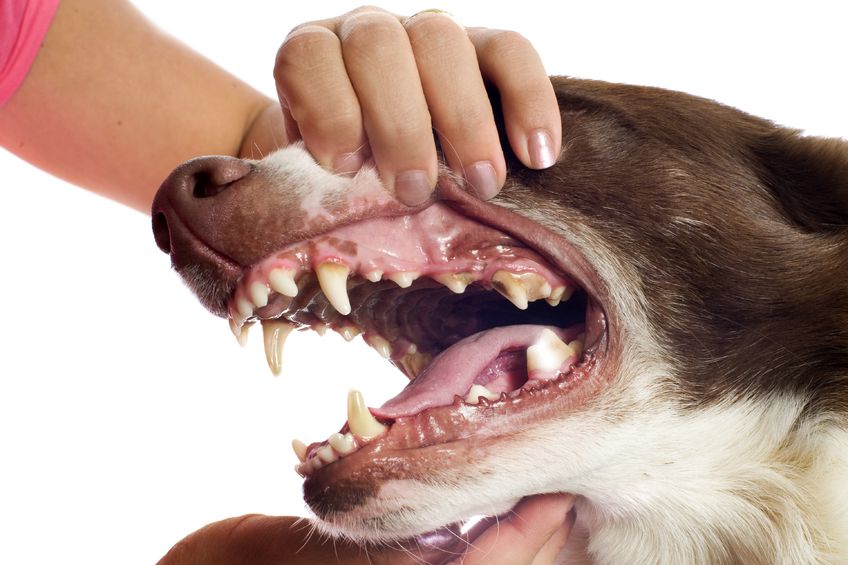
Infection and inflammation:
Gum disease, infected teeth, and oral infections can all cause pain in the mouth. Because inflamed tissues have to feel warmer, if your dog has a dental condition, the mouth may feel warmer owing to the ongoing pain.
Panting and unease:
Dogs with dental issues may pant more frequently as a result of discomfort, suffering, or difficulty eating. Despite the underlying dental condition, increased panting might add moisture to the mouth and make it feel cooler.
If you suspect your dog has dental problems, you must address them right away. Dental health is an important element of your dog’s overall wellness. Regular dental care and professional veterinary check-ups can help prevent and treat dental problems, keeping your dog’s mouth healthy and nice.
10. Medications or Anesthesia:
The temperature of your dog’s mouth can be affected by medications or anesthesia. Here’s an easy way to explain it:
Anesthesia:
When a dog undergoes surgery or a medical procedure that needs anesthesia, their body temperature regulation can suffer. Anesthesia frequently causes a dog’s body temperature to drop, which might extend to their mouth and make it feel chilly.
Medications:
Some drugs may cause adverse effects on blood flow or body temperature regulation. These factors can also cause changes in the temperature of a dog’s mouth.
If your dog has recently been medicated or is on drugs with temperature-related side effects, their mouth may feel cooler. While this is a regular component of medical treatments, it is critical to monitor your dog’s overall health and adhere to any post-operative or medication instructions advised by your veterinarian to ensure a smooth recovery.
How to Check Your Dog’s Temperature
If you worry about your dog’s temperature, you can take their internal temperature with a digital thermometer.
Caring for Your Dog’s Health
Maintaining your dog’s health and well-being is crucial. Here are some steps you can take:
Regular visits to your Vet
Routine vet visits can assist in ensuring that your dog’s health is in good shape. They can provide you with advice on your dog’s individual needs and suggest preventive actions.
Nutrition and Hydration
Your dog’s health depends on a well-balanced diet and access to clean, fresh water. Make sure your dog is properly hydrated, as this can impact his oral temperature.
Exercise and Activity
Regular exercise is important for keeping your dog in good condition. It also keeps them active and healthy by controlling their body temperature.
Conclusion
A cold dog’s mouth is usually a natural part of your pet’s biology. However, it is important to be aware of the things that can impact this temperature and recognize when it may be a sign of an important health problem. Regular vet visits, a proper diet, and exercise are essential for your dog’s happiness and health.
FAQs
1. Can a dog’s mouth be too warm or too cold?
Yes, a dog’s oral temperature can vary, but extremes may signal a problem. Excessively warm mouths may indicate fever, whereas excessively cold mouths may indicate cold.
2. How often should I check my dog’s temperature?
Unless you see signs of sickness, you do not need to check your dog’s temperature every day. Consult your animal’s veterinarian if you are concerned about their temperature.
3. What should I do if my dog’s mouth is very cold?
If your dog’s mouth is excessively cold and he or she feels cold or weak, seek immediate healthcare.
4. How can I keep my dog hydrated?
Make sure your dog always has access to clean, fresh water. Make sure they drink enough water, especially in hot weather or after hard work.
5. Is a dog’s mouth cleaner than a human’s?
According to a popular myth, a dog’s mouth is not necessarily cleaner than a human’s. Both can harbor bacteria, but the types of bacteria differ. Proper dental care is essential for your dog’s oral health.
Related Articles


